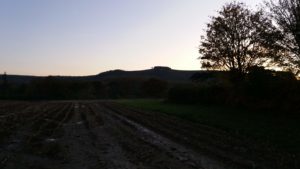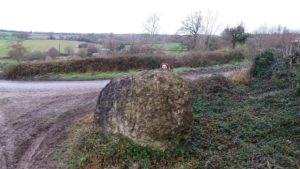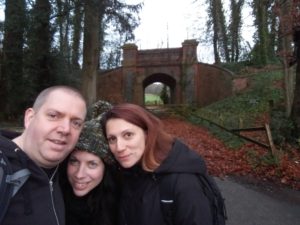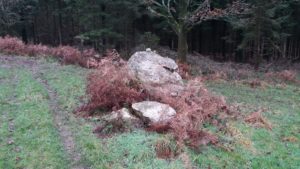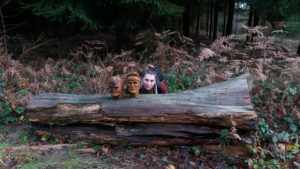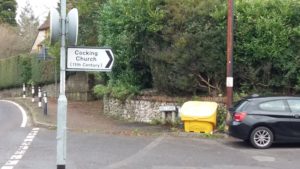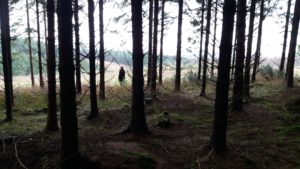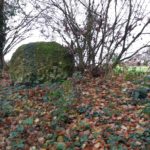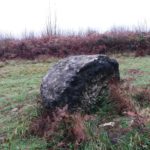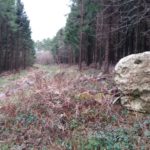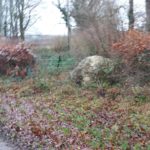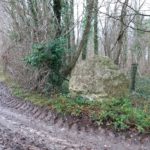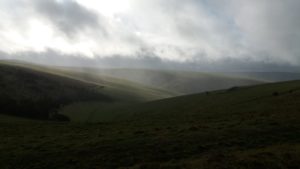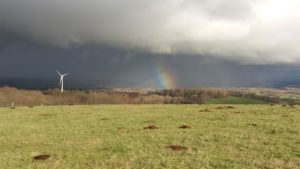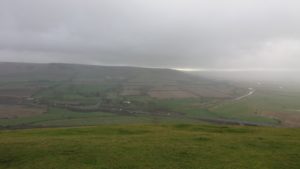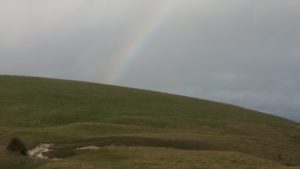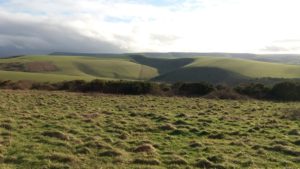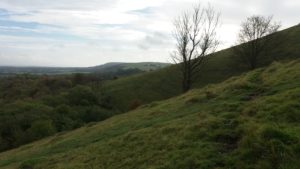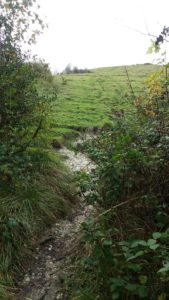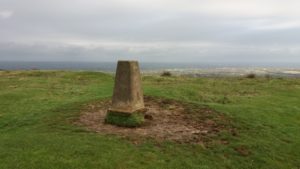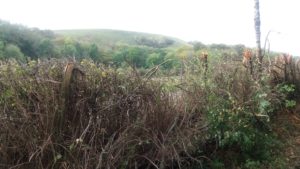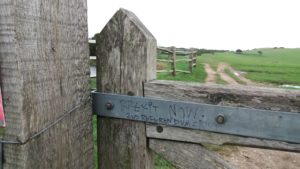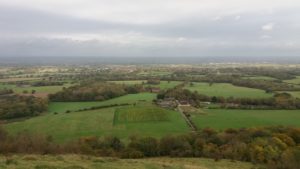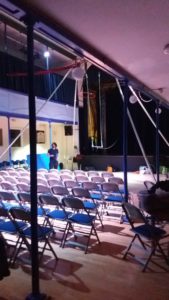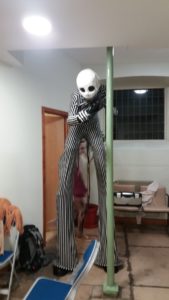(The outing from this post took place in early November. It’s taken me a while to finish this, but I wanted to share it)
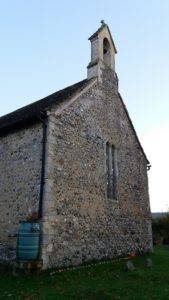 Sussex has never felt all that rural to me. Even though I grew up running through fields and woodlands, I lived in a suburban housing estate. I was as captivated by TV and early computer games as I was by the countryside. And the land around the estate didn’t feel particularly wild. There were few large animals, and the only danger came from ‘strangers’.
Sussex has never felt all that rural to me. Even though I grew up running through fields and woodlands, I lived in a suburban housing estate. I was as captivated by TV and early computer games as I was by the countryside. And the land around the estate didn’t feel particularly wild. There were few large animals, and the only danger came from ‘strangers’.
Buncton Church, near Steyning, is only a few miles from where I grew up. From the road, there is only a small sign in a lay-by, and some steps going into the trees. I had been driven there with my friend Sooxanne by Matt Pope, who was going to show us the church. The path from the road to the church enters a small wooded valley, crossing a spring-fed stream before rising towards the church. If you were designing a rural church setting for a video game, this is the sort of thing you’d come up with.
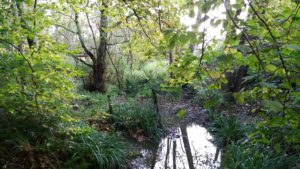
One of the things I love about the world is how incredibly textured it is. Everything is rich and detailed, if you know enough about the subject. The church is 900 years old, and Matt showed us how the stones had been brought together from other buildings. Some Roman bricks had been used in the church wall, and Matt showed us how their centre isn’t properly fired, retaining a grey clay colour.


We were at the church to visit a sheela-na-gig. Or, rather, we were there to visit the absence of one.
A Sheela-na-gig is a church sculpture of a naked, sexual, female figure. I’d first heard the word as a teenager in the PJ Harvey song, which I first heard on a mix tape a friend made me. That song has the sort of energy you’d expect from these figures (which are often – with some sexism – referred to as ‘grotesques’). The figures tend to occur in the West of Britain and in Ireland, and it is rare to have one so far into the South East.

This particular Sheela-Na-Gig we’d come to visit might have originally been a sculpture of Adam. The area between the statue’s legs was hacked out long ago, possibly removing a penis. There is also a space opposite the statue which has been renovated at some point, that might once have housed a corresponding Eve. The figure had likely been in the Buncton church for centuries, since it was built.
There is a lovely description of Buncton church in Justin Hopper’s book The Old Weird Albion. The passage captures the strange, mystical peace of the place, and its feeling of dense age. Justin refers back to Arthur Beaton Cooks’s 1923 book, Off The Beaten Track in Sussex, with its description of Buncton as seeing “the survival of old rites, which began in pagan times, and did not entire change with the advent of Christianity… One may regard the hill-top as being as near to Christ as to Wodin”. The church does feel lost in time, with the weathered gravestones, leaning as if tired.
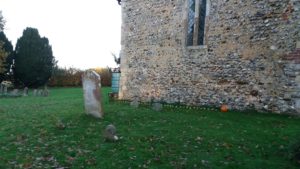
 The church interior is a simple space, with wooden altar and a few small pews. The walls are simple and painted white apart from one place, where a fleur-de-lys pattern is visible “as if a hole had been opened in the history of the space”. And then there is the Sheela-na-gig. All that remains is a gap, “another spirit added to Buncton’s swirling maze”.
The church interior is a simple space, with wooden altar and a few small pews. The walls are simple and painted white apart from one place, where a fleur-de-lys pattern is visible “as if a hole had been opened in the history of the space”. And then there is the Sheela-na-gig. All that remains is a gap, “another spirit added to Buncton’s swirling maze”.
The Buncton Sheela-na-gig had been famous. It was conveniently located for local pagans who wanted to visit one of these statues without a long journey. Votive offerings of flowers were sometimes left at the statue, which most people saw as a good thing, although they were less enthusiastic about the fertility rituals that sometimes took place.

After centuries of controversy, on 10th or 11th November 2004, someone took a chisel and gouged the figure away, leaving splinters of stone at the pillar’s base. The police apparently had a suspect, but no action was every taken. There is not even a photograph of the sheela-na-gig in the church, as some people still see the “unchristian” carving as malign.
We walked out onto a field, looking in the plough-tracks for more traces of roman brickwork, maybe some vague clue to what was here before the church I found something too light and flat to be a natural stone, which was probably a mediaeval roof tile. I slipped it into my pocket.
The day was fading. A bright red moon hung just above the trees, and mist gathered on the field. This was a wilder Sussex than I had become used to after years of living in Brighton. That little church in Buncton, not even a road to reach it, felt like a time machine. And, even though its physical form is gone, the Sheela-na-gig is still there in the empty space.
